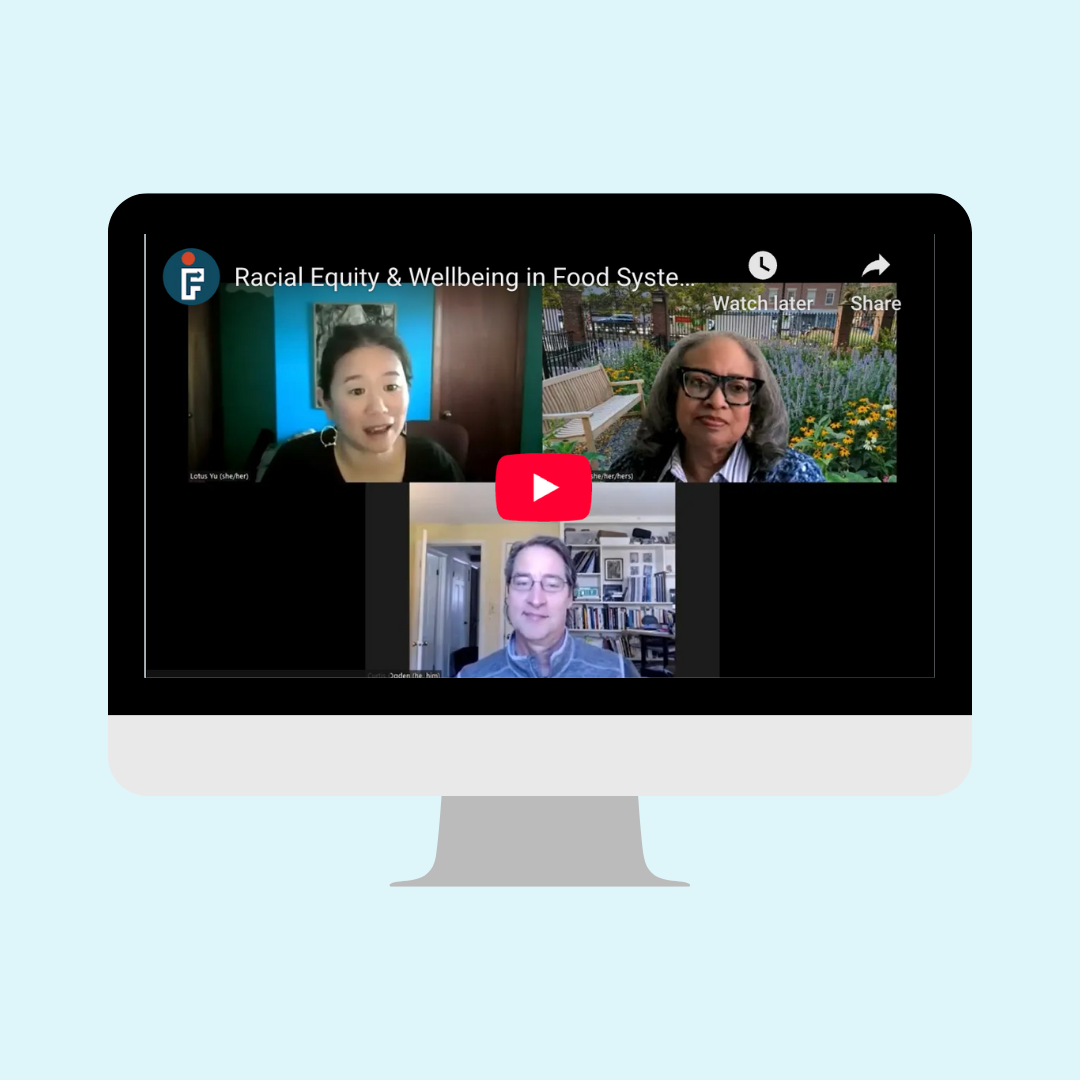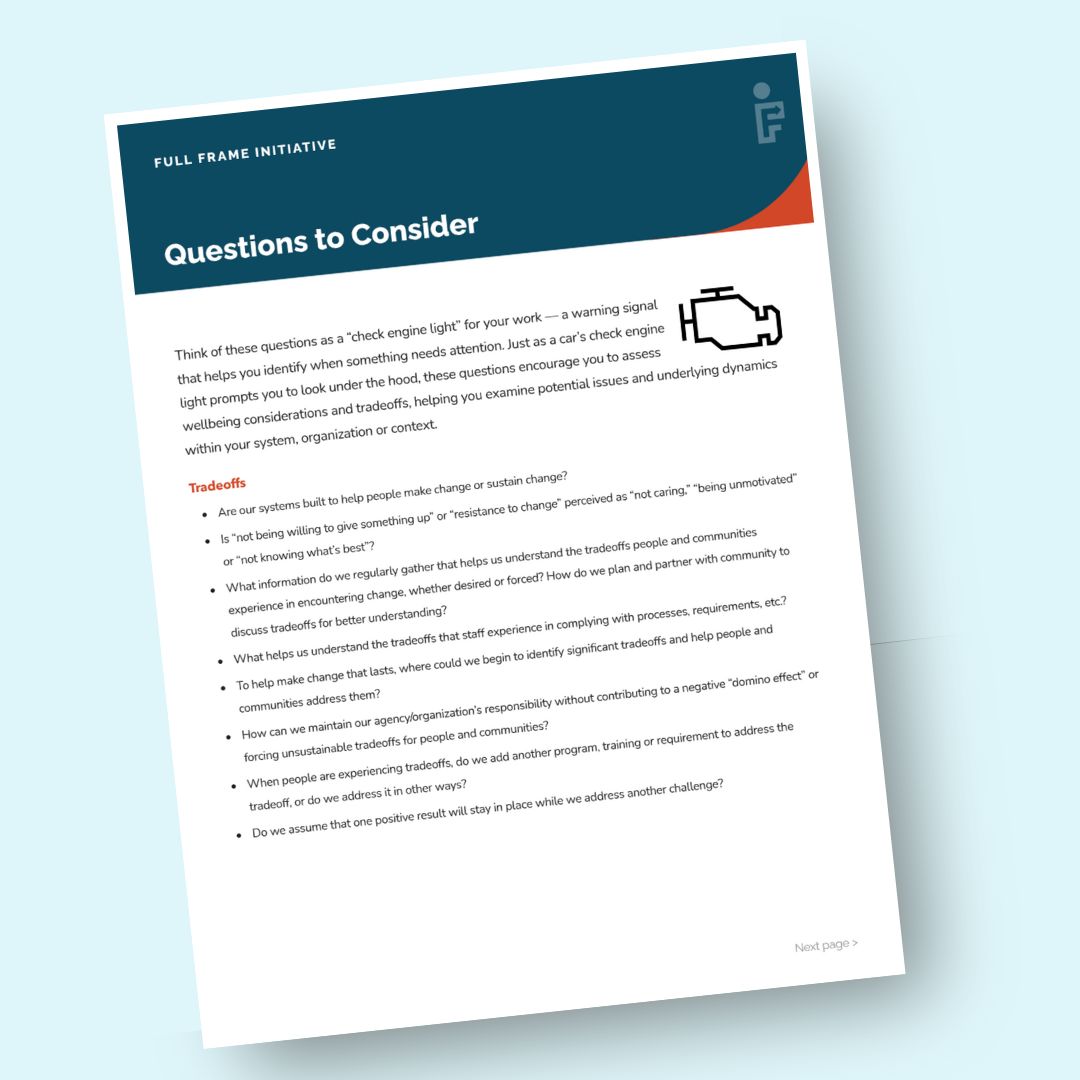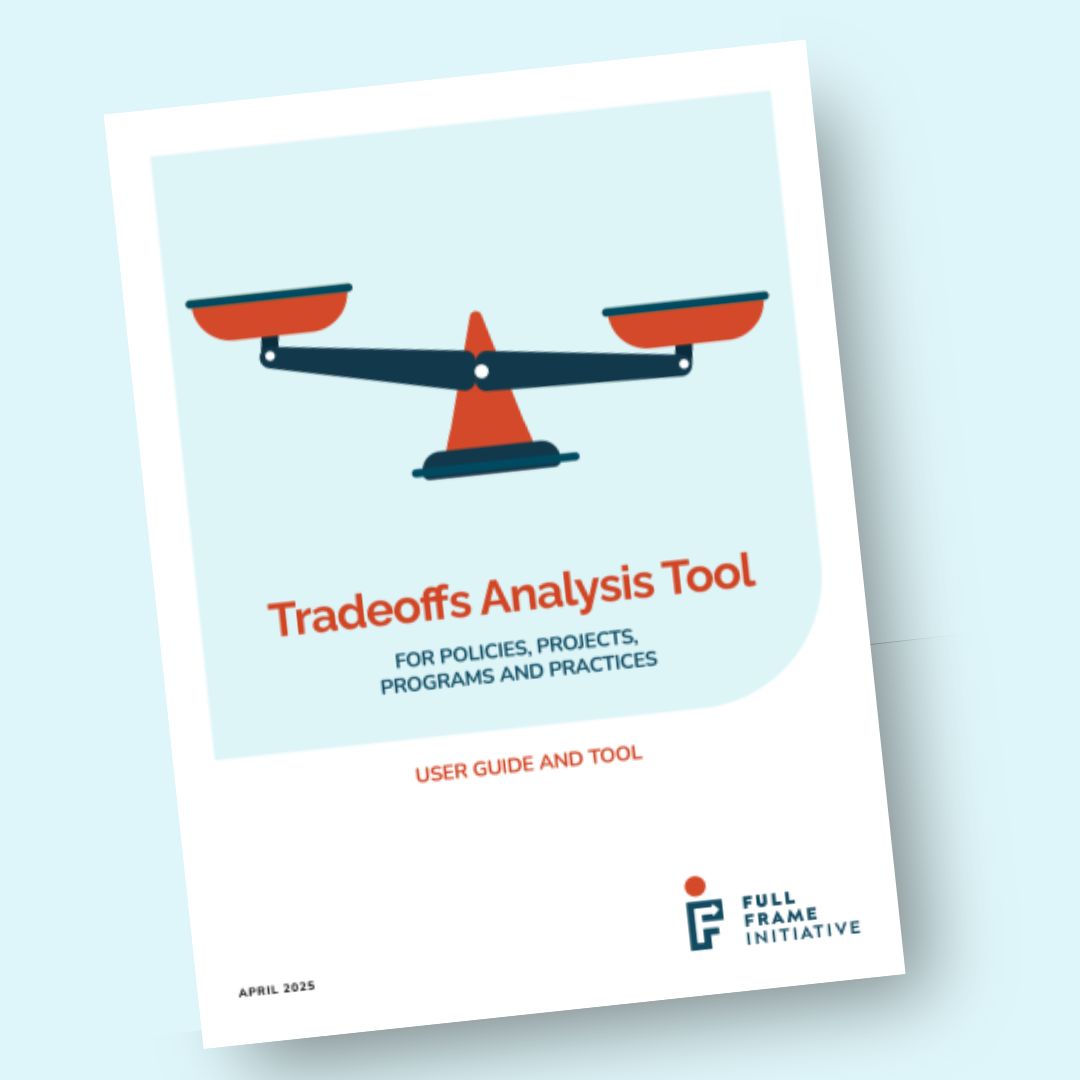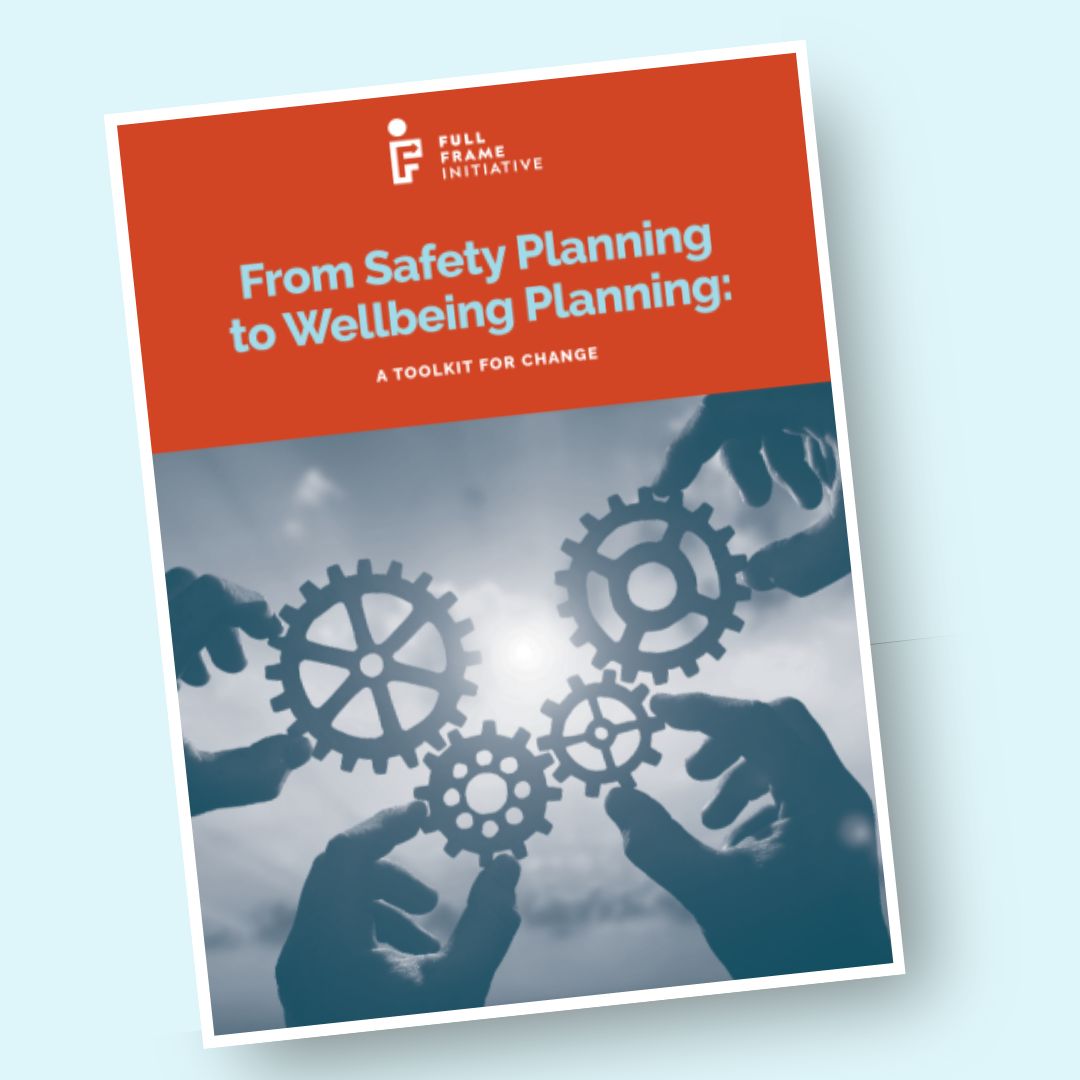
On the heels of Food Solutions New England’s 2023 21-Day Racial Equity Habit-Building Challenge, we sat down with Karen Spiller and Curtis Ogden to explore the connections between racial equity, wellbeing and food systems.
The Full Frame Initiative was thrilled to partner with Food Solutions New England on its 2023 21-Day Racial Equity Habit-Building Challenge. On the heels of this year’s Challenge, we sat down with Karen Spiller and Curtis Ogden to explore the connections between racial equity, wellbeing and food systems. Karen Spiller is Principal of KAS Consulting, the Thomas W. Haas Professor in Sustainable Food Systems at University of New Hampshire, and the Coordinating Ambassador of Food Solutions New England. Curtis Ogden is a Senior Associate with the Interaction Institute for Social Change and the lead facilitator of the Food Solutions New England network.
Food Solutions New England made a commitment to racial equity as a core value that is non-negotiable. We have been bringing together this network across six New England states for the past 11 years, using our power and privilege to change our food system so it is more equitable. We chose wellbeing and belonging because, as you say at the Full Frame Initiative, we are all hardwired for wellbeing. And we all seek belonging. We want to feel that when we are in spaces, familiar and unfamiliar, that we are welcome.
We are so appreciative of the Full Frame Initiative and our friends at the Othering and Belonging Institute at UC Berkeley, for the ways that you all have framed up wellbeing and belonging. Everybody can relate to the concept of wellbeing and how it differs from wellness, which often has an individualistic focus. Wellbeing is systemic, structural and societal – it is collective. This is also about how systems were designed to give some of us more ready access to wellbeing and belonging than others. To some extent, we are all doing workarounds, or as the Full Frame Initiative describes them, we have to make tradeoffs. And clearly some of us have unsustainable tradeoffs when we’re forced, for example, to choose between heating our homes or feeding our kids. And so much of that, of course, plays out along lines of where we sit in society, often defined by racial identity, ethnic identity, and if we’re living in poverty. That’s the aim of our equity work and our justice work – that everybody has a fair shot at well being and belonging.
We don’t all have a fair shot at wellbeing, whether we are talking about education, health, political systems, food systems and more. Part of the unevenness of that playing field is determined by identity and how we have bias and preference that plays out and has played out historically, along the lines of race, of gender, of ability, of sexual preference. There has been an emphasis on who fits and who deserves and who gets access to wellbeing explicitly and also implicitly. When you look at the food system – from who gets to own food businesses, who gets to determine what gets served in institutions, who has access to nutritious foods, who gets to farm sustainably with capital investment – so much of that is determined, and has been determined historically, by aspects of identity. We want to be clear that wellbeing is not just about whether you made a good choice or a bad choice as an individual; it’s baked into the system. We need to unpack this inequity so that we can create a new formulation, a new recipe, so that everybody can get access to wellbeing and deal with sustainable tradeoffs.
We know that it takes 21 days to begin to develop a habit, and there is some evidence that it takes more like 60 days to take hold. It’s unlikely that most people are going to get through everything in the Challenge in those 21 days. So we recommend you keep your learning going, keep reading and keep going back to the prompts and the resources. Also, this was never meant to be an individual journey. We certainly did not get into this individually! Bring the prompts into conversations, bring resources into your workplace. The Challenge is meant to be experienced as a community.
At Food Solutions New England, we talk about how justice and sustainability and democracy are all fundamentally interlinked. And this is the work of our times – no matter what kind of system we are talking about. Use the Challenge to build community, extend an invite to your community to go through it with them. The Challenge is not just about food systems, whether you are an educator, faith-based community, fisherman, or farmer – we are thinking about equitable wellbeing and belonging in all systems, building community, interconnectivity, interdependence, and leaning into this way of seeing, being and doing that can bring more justice and sustainability.

This tool offers a set of questions related to tradeoffs and the Five Domains of Wellbeing that you can use as a “check engine light” for you and your work.

Use this tool to identify how a specific policy, project, program or practice will impact different stakeholders’ wellbeing, allowing you to anticipate and address unsustainable tradeoffs.

Learn how domestic violence practitioners can shift from a singular focus on short-term safety toward increasing survivor safety in the context of creating opportunities to support long-term wellbeing.